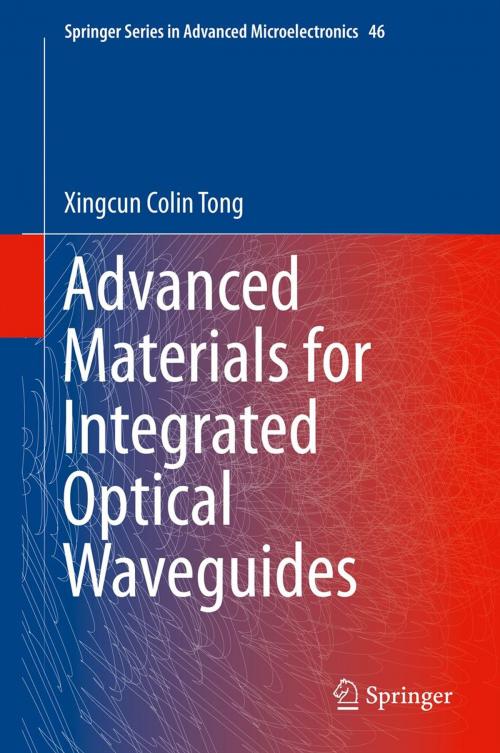Advanced Materials for Integrated Optical Waveguides
Nonfiction, Science & Nature, Technology, Material Science, Electronics, Circuits| Author: | Xingcun Colin Tong Ph.D | ISBN: | 9783319015507 |
| Publisher: | Springer International Publishing | Publication: | October 17, 2013 |
| Imprint: | Springer | Language: | English |
| Author: | Xingcun Colin Tong Ph.D |
| ISBN: | 9783319015507 |
| Publisher: | Springer International Publishing |
| Publication: | October 17, 2013 |
| Imprint: | Springer |
| Language: | English |
This book provides a comprehensive introduction to integrated optical waveguides for information technology and data communications. Integrated coverage ranges from advanced materials, fabrication, and characterization techniques to guidelines for design and simulation. A concluding chapter offers perspectives on likely future trends and challenges. The dramatic scaling down of feature sizes has driven exponential improvements in semiconductor productivity and performance in the past several decades. However, with the potential of gigascale integration, size reduction is approaching a physical limitation due to the negative impact on resistance and inductance of metal interconnects with current copper-trace based technology. Integrated optics provides a potentially lower-cost, higher performance alternative to electronics in optical communication systems. Optical interconnects, in which light can be generated, guided, modulated, amplified, and detected, can provide greater bandwidth, lower power consumption, decreased interconnect delays, resistance to electromagnetic interference, and reduced crosstalk when integrated into standard electronic circuits. Integrated waveguide optics represents a truly multidisciplinary field of science and engineering, with continued growth requiring new developments in modeling, further advances in materials science, and innovations in integration platforms. In addition, the processing and fabrication of these new devices must be optimized in conjunction with the development of accurate and precise characterization and testing methods. Students and professionals in materials science and engineering will find Advanced Materials for Integrated Optical Waveguides to be an invaluable reference for meeting these research and development goals.
This book provides a comprehensive introduction to integrated optical waveguides for information technology and data communications. Integrated coverage ranges from advanced materials, fabrication, and characterization techniques to guidelines for design and simulation. A concluding chapter offers perspectives on likely future trends and challenges. The dramatic scaling down of feature sizes has driven exponential improvements in semiconductor productivity and performance in the past several decades. However, with the potential of gigascale integration, size reduction is approaching a physical limitation due to the negative impact on resistance and inductance of metal interconnects with current copper-trace based technology. Integrated optics provides a potentially lower-cost, higher performance alternative to electronics in optical communication systems. Optical interconnects, in which light can be generated, guided, modulated, amplified, and detected, can provide greater bandwidth, lower power consumption, decreased interconnect delays, resistance to electromagnetic interference, and reduced crosstalk when integrated into standard electronic circuits. Integrated waveguide optics represents a truly multidisciplinary field of science and engineering, with continued growth requiring new developments in modeling, further advances in materials science, and innovations in integration platforms. In addition, the processing and fabrication of these new devices must be optimized in conjunction with the development of accurate and precise characterization and testing methods. Students and professionals in materials science and engineering will find Advanced Materials for Integrated Optical Waveguides to be an invaluable reference for meeting these research and development goals.















